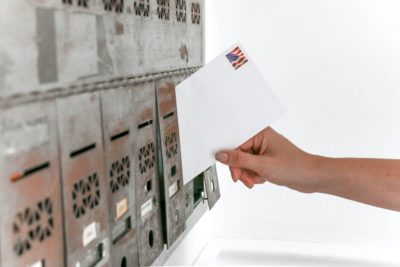

Six uneasy, taxing months have gone by since North Carolina schools shut down in response to the COVID-19 outbreak. The iconic yellow buses still roll, many delivering food to families and Wi-Fi hot spots to young people for online study, none filled to capacity transporting students to school classrooms.
Now, across this sprawling, diverse state, North Carolina public schools offer a mix of in-class and online instruction. As an election nears, the dilemmas over when and how to reopen schools fully have entered the wider COVID-laden political dynamic. On Wednesday, state Republican leaders called for a return to full-time, in-person classes. On Thursday, Democratic Gov. Roy Cooper set in motion a reopening of elementary schools for daily in-person instruction in October.
In a national cable-TV interview last Friday, Dr. Anthony Fauci, the director of the National Institute for Allergy and Infectious Diseases, delivered a sobering outlook for containing the contagion in the near term. His remarks provide context as education decision-makers, teachers, and parents yearn for a return of normality.
“But by the time you mobilize the distribution of the vaccine and get a majority or more of the population vaccinated and protected, that’s likely not going to happen until the end of 2021,” Fauci said. “If you’re talking about getting back to a degree of normality prior to COVID, it’s going to be well into 2021, towards the end of 2021.”
Fauci’s assessment doesn’t necessarily mean no return to full in-class schooling for more than a year. But it does reinforce that reopening schools hangs on advances in medication and on the discipline, or lack of it, in the civil society in measures to thwart the spread of infection.
Eric Davis, chair of the State Board of Education, understands the connection between reopening schools and the disciplines of wearing a mask, keeping a distance, and avoiding crowds. In a conversation with me earlier this week before the governor’s announcement, Davis said that the state had made “good progress” and had reached a “tipping point.”
Between now and the end of the year, he said, “If we can keep at it, we have a chance to get our kids back in school in the spring.” A key question is, he added, “Are our teachers going to join us without a vaccine?”
Development and distribution of an effective vaccine are beyond the scope of state and local education authorities. The state board asked the General Assembly for $44 million to supply personal protective equipment to reassure teachers and school staff. The budget developed by the Republican majority provided $20 million, less than half.
The coronavirus, spread largely through airborne droplets, has also led to renewed concern over sanitization and ventilation in schools. In 2016, the state’s own facility needs survey calculated that North Carolina required $8 billion in school construction and renovations.
“Needs for renovations during the next five years were reported for 1,560 schools,’’ says the 2016 report. “Plumbing, air conditioning, and electrical needs ($821,089,305) account for almost one-third of all reported renovation needs.”
While some counties have adopted bond issues for schools, the General Assembly did not adopt a financing mechanism to address the needs outlined in the facilities survey this year. Lawmakers adopted a budget that contained roughly $4.4 billion over 10 years for K-12 construction and repair in 2019. Cooper vetoed that budget, in part, because he disagreed with how lawmakers wanted to fund capital construction as well as with the teacher pay Republicans offered. Cooper proposed a $3.9 billion bond issue this year, but GOP lawmakers didn’t go along with it or come up with an alternative.
The pandemic is a “historic test of the resilience” of American public schools, says David Osborne, author of “Reinventing America’s Schools,” who along with colleagues at the Progressive Policy Institute join the debate among policy analysts and advocates in offering ideas for 2021 and beyond.
“As the pandemic continues to spread, it’s hard to imagine a more urgent national imperative than making sure all school districts are equipped to meet this challenge,” Osborne and his colleagues write in a new policy paper. “…The U.S. needs a crash program — on a scale equivalent to the 1960s moonshot, but faster — aimed at helping our schools operate virtually, both as a substitute for and an important complement to live instruction.”
In North Carolina, a basic consensus holds that in-class is better than at-home virtual schooling — both for young people in stressful living conditions and for anxious working parents. But restoring and enhancing public schooling calls for political leadership that pays heed to Fauci’s admonitions while also gearing up for a “historic test.”
Editor’s Note: David Osborne is the father of Molly Osborne, EducationNC’s director of policy.
Correction: This column has been changed to clarify that the General Assembly did pass a school construction plan in the budget in 2019, but that the governor vetoed it, and that budget never became law.


